Banned Books Week 2024: Celebrating Challenged Books & Shel Silverstein
On Censorship, Moms of Liberty, & a Provocative Poet
“In a time of intense political polarization, library staff in every state are facing an unprecedented number of attempts to ban books… The number of titles targeted for censorship surged 65% in 2023 compared to 2022, reaching the highest levels ever documented by OIF in more than 20 years of tracking: 4,240 unique book titles were targeted for removal from schools and libraries.” - American Library Association
It is “Banned Books Week” once again, and as your resident champion for the subversive I’d like to carry on my tradition of using this time to celebrate some of my favorite controversial texts.
But First: Let’s Talk About Censorship in the U.S.
In the good ol’ land of the free, the phrase “banned book” isn’t quite as it seems. We see the lists, we read the stories, they even have their own shelf at the bookstore, but what does it really mean?
“Book banning” doesn’t happen on a national scale in the U.S. because we have our constitutional right to free speech; generally, you can’t stop someone from publishing something just because you don’t like what they’re saying.
We’ve sure tried it though! Taking off in the 1850’s and through the American Civil War, the information war first took place on the front of slavery: Southern states banned abolitionist texts while Northern states respectively did the same for pro-Southern writing. The Comstock Act of 1873 prohibited the mailing of “obscene publications” without establishing what “obscene” means, so naturally its key function was to arrest doctors who shared pamphlets about pregnancy and birth control! Tale as old as time.
Into the 20th century the same regressive pearl-clutching cycled through in different flavors, namely Jim Crow Style Racism and Red Scare Style Anti-Communism. None of it ultimately stuck, though; in the 1980’s the Supreme Court formally protected students’ right to read and librarians established “Banned Books Week” as an annual event, thus cementing the topic of censorship in The Public for the foreseeable future.
Now here we are in 2024. Free speech is still protected, people can generally find books about whatever they want, but Americans have been trying it like never before. Booksellers curate their shelves as they wish, and to get library board approval to ban a book is a tall order even in the most conservative of areas. So naturally this ideological battle, like so many others, takes place in schools.
The recent surge of book challenges in the U.S. is not from increased cases of children accidentally finding explicit texts at their school libraries, but from organized national parent groups such as Moms for Liberty, Citizens Defending Freedom, and Parents’ Rights in Education. These groups build lists of books they find naughty and send them to local chapters who then advocate school library censorship in their districts (read: be a menace to people who are already overextended/underfunded). These groups are the reason you might hear strange claims like “they’re teaching communism to 8-year-olds!” or “take pornography out of school libraries!”
These attempts at censorship are a relatively organized and manufactured moral crisis that we should meet with ridicule, because if your child has access to the internet you have way bigger things to worry about than whether their classmates read a book on health and wellbeing that conflicts with your personal values.
From last year’s Banned Book Week conversation...
It’s fascinating how a dozen people can each walk away from a text with something different; the same story processed through a dozen different filters. It’s both the risk and the reward of Art as an Experience, and the culture seems to be grappling with the larger implications of that risk as media is an omnipresent cornerstone of our everyday lives.
Shel Silverstein: Frequently Challenged & Delightfully Strange
You might remember Shel Silverstein’s book The Giving Tree, or his poetry books including Where the Sidewalk Ends and A Light in the Attic. His poetry collections are a cabinet of curiosities that display a huge peachy sense of humor wrapped around a small darkness. At times that darkness comes out to play, but more often it hides behind inference.
You might not know that in the 1990’s Silverstein received a number of challenges in response to his work because some interpreted The Giving Tree as being sexist or claimed his poems “glorified suicide,” “encouraged cannibalism,” or promoted “disrespect for authority.”
A note on sexism in The Giving Tree:
The sexism claim is that “the predatory nature in which the boy takes from the (tree) and how he expects her to cater to his wants and needs without regard to her well-being is a sexist theme.”
Now… I think that is a valid interpretation. The book is sad. It is a story of a tragic and one-sided love. The tree gives her all to the boy who uses her up until she has nothing left. Yes, in the final lines the text says, “the tree is happy,” but in the illustrations we see her reduced from leafy swinging branches to a mere stump, on which the now-elderly boy sits and smiles. They have grown old together, they may die together, and we are left to wonder where our limits are and how much we have to give to another.
Inscribed in the copy of The Giving Tree that a dear friend gifted me is her handwritten note, “This book fucked me up as a kid.”
Maybe the text circulated without the illustrations and it removed some important subtext. Perhaps it is a plain bad-faith interpretation based on Silverstein’s past. Read it and decide for yourself, it makes me feel wistful and sad.
Looking further back into his career may explain more clearly the attempts to bar access to his work. My theory is that a few parents may have discovered Silverstein kicked off his career in the 1950’s-1960’s as a cartoonist and writer for Playboy. In 1965, Hefner sent Silverstein to Fire Island to report on its burgeoning gay scene.
There’s no way to know how exactly word got around about Silverstein, or if it did at all, but to write about homosexual culture in a nudie mag was surely like catnip for these reactionary Moms for Liberty types. Or maybe it was truly coincidence and a hungry stare at a centerfold was broken by a familiar name calling from the spine of a children’s book.
Shel’s interests reached even further than poetry, prose, and illustration: he was also a boisterous satirical folk musician who wrote songs that reached the ear of outlaw legend Johnny Cash. He called Silverstein “one of the most talented guys (he’s) ever met” and would go on to cover some of his songs, including iconic death row countdown 25 Minutes to Go and A Boy Named Sue.
A trace of humor in every song, a bald bearded man dancing and wailing with his eyes pointed to the gallows.
This renaissance man, this shapeshifting creative, used his many talents for opposite but not conflicting ends. The playful contradiction of it all is so delightfully human, the commitment to both whimsy and vulgarity; we all know where babies come from, so how reasonably can we demand purity from our children’s entertainers? Who’s reading those Playboy mags?
As creative people — as people in general — what are we if not countless contradictions stacked on top of each other? Embrace the contradictions because they are inescapable anyway, try things out, be unusual and provocative because the subverts are those who drive the culture. We celebrate challenged books every year because the sword bows to the might of the pen: our urge to think and understand are fed by confronting ideas that challenge our perspective. To quiet the buzz of discovery by banning a couple books is about as effective as trying to silence the entire forest by squashing a single cicada.
There are too many seekers to be squashed, and as our means to communicate expand we are all the more able to seek out those scrumptious and elusive ideas that regressive people fear.
Run towards the fear, not away from it. You never know what you might learn.




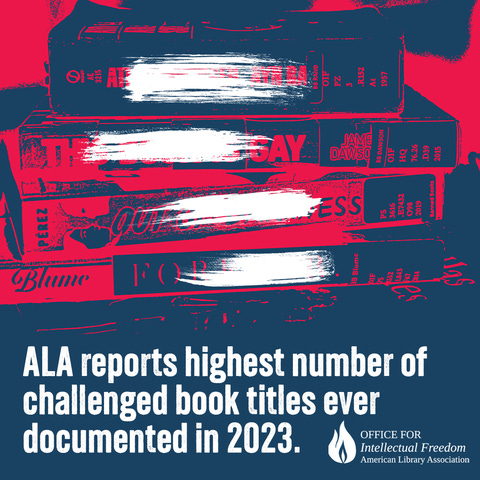
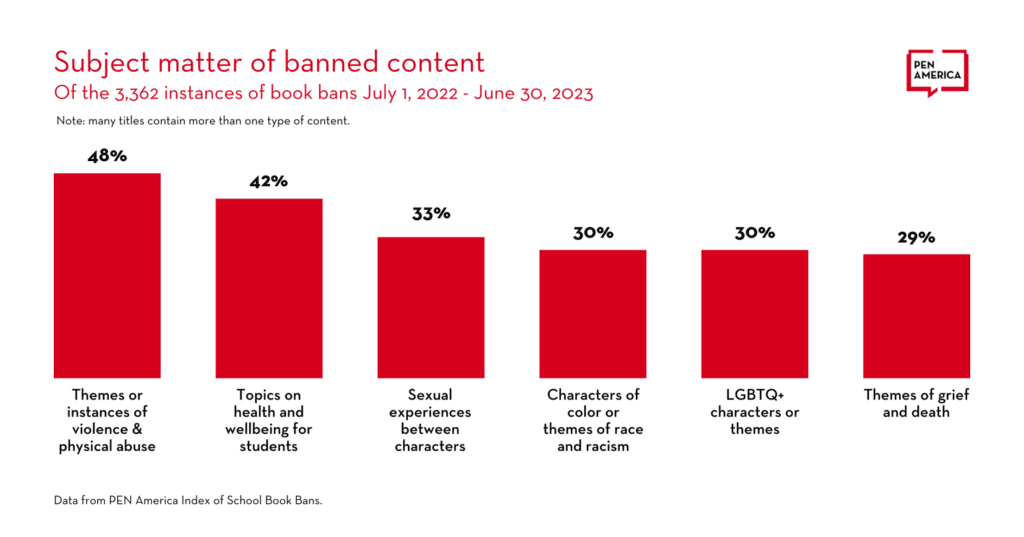
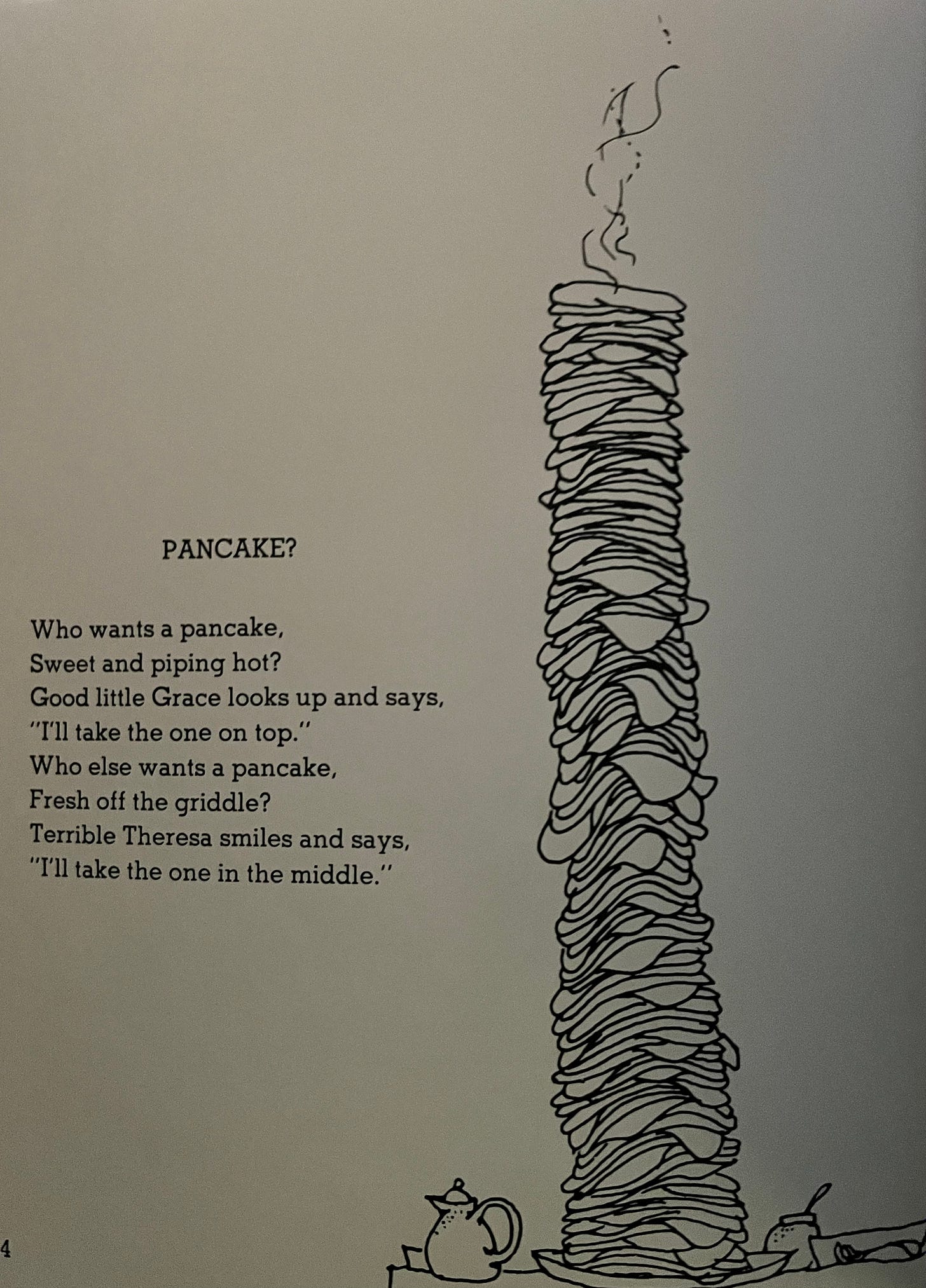
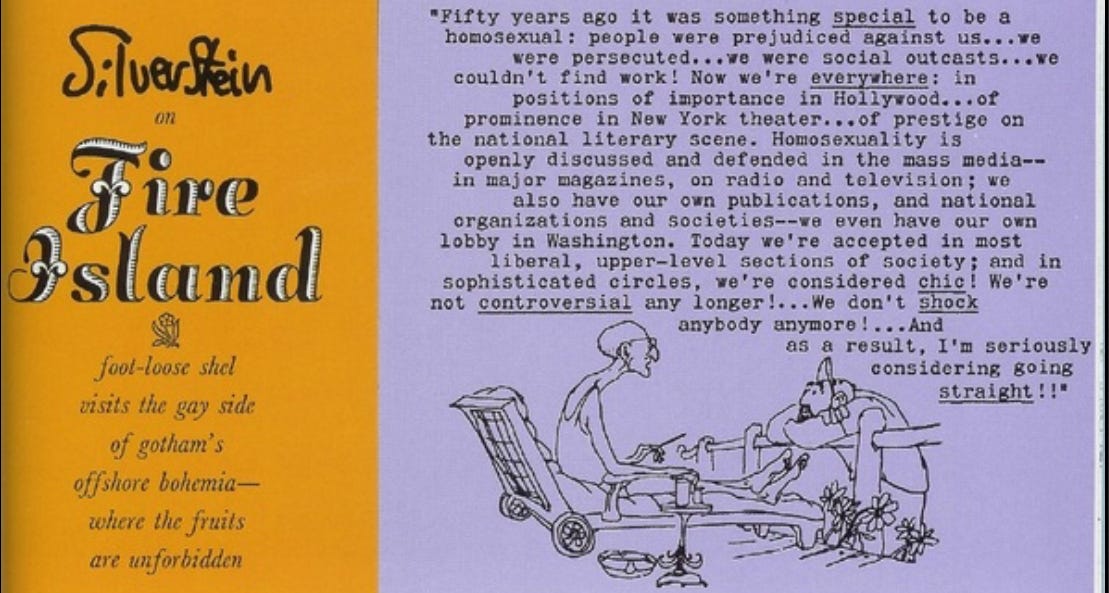
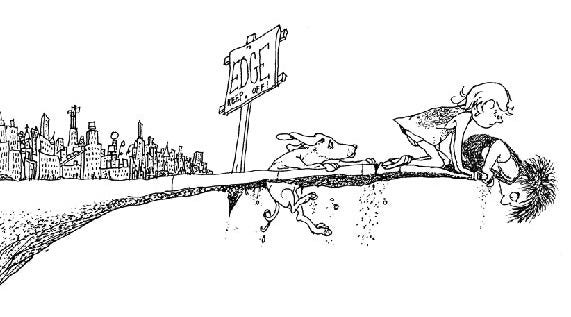
I was OBSESSED with Shel Silverstein poems as a child, I still have Where the Sidewalk Ends, Falling Up, and A Light in the Attic and I would read them cover to cover and then start all over again. He is a singular talent and proof that kids have always been weird
I grew up reading Shel Silverstein and listening to Johnny Cash, but never realized there was overlap! It makes SO much sense now that I know he wrote A Boy Named Sue!